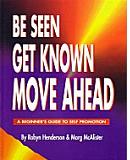Career management – keeping your career on track
Once you’ve chosen your dream career – don’t stop there. Career management is essential in ensuring the continued rise of your star. After all, your career is a life long journey and the end point of that journey is a function of how well you drive it.
And whether you’re a formula 1 racing driver or just content with a leisurely drive in the country, you still need to manage your career for your own personal satisfaction and happiness.
Career management involves the following:
Get skilled! And stay skilled.
In this IT savvy world, the days of unskilled labour are almost gone. To have any resemblance of a successful career, you need to have skills. And for your chosen career, there will be a suite of skills and training available to you.
So for good career management it’s important that you stay up to date with this training – avail yourself for courses and be a sponge! Aim to be the best in your field through continuous improvement.
You can also stay up to date with developments in your career by selected ‘reading’ of trade related magazines and articles. You should be aiming to read relevant articles every week, so set aside time to do this.
Conferences are also a great way to absorb information – and network with people in your profession too! Before arriving at the conference, peruse the conference agenda and work out what you want to achieve from each of the conference sessions. It’s useful to think of some pertinent questions to ask the presenters (if there is a question time allowed) – this is also a great way to be seen by your peers.
And it’s not just the skills needed for your particular career, it’s also those vital self-management skills that all employers value so highly – time management, planning and organisation, decision making, communications and people skills – develop these skills too and promote your ability to manage yourself.
The “Life Skills” tab on the NavBar is full of useful skills that everyone needs to make the most of their career – you MUST read this section for the benefit of your career!
Review your progress - regularly
Like all goals, you need to review where you are to make sure you’re still heading in the right direction – and this is particularly important with long term goals such as career management goals, where there aren’t as many definable milestones along the way.
You can review your own progress by considering what you’ve achieved and how this measures up as progress towards your career goals, and you can also seek and thrive on feedback from your peers and your supervisors.
Most employers have a formal system of performance reviews – use these as a positive step in career management. Make sure you prepare yourself for performance reviews by reviewing what you’ve achieved, what mistakes you’ve made (and what you’ve learnt from these mistakes) and what your aspirations are for the next performance period.
It can also help to seek out a mentor – not your direct supervisor or boss, but someone senior in your profession that you can discuss your career with. Again, many companies have a formal mentorship program – so make the most of this opportunity to develop your career.
And in order to review your progress, you need to document it. Keep a journal of your career, including your successes and failures, and more importantly the lessons learnt. Keep details of the projects you’ve completed and your role in these projects – not only is it a great reference when it comes to doing resumes and performance reviewed, it’s a way of recording how you are progressing through your career as your roles change.
It’s also worthwhile doing a weekly review of what you’ve learnt during the week, particularly if your work is particularly fast paced.
|
In 100 Greatest Ideas for Building Your Career, you will find the: 8 Greatest Ideas for Winning at Company Politics 4 Greatest Ideas for Impressing the Management Panel 7 Greatest Ideas for Leading a Team to Success 6 Greatest Ideas for Getting Nearer the Top ...and 75 other fantastic ideas, tips and tricks that will take you to the very top. |
Visualise your successful career
The power of positive thought and visualisation is amazing – so use it to your advantage. It’s a bit like the placebo effect where a doctor gives a patient sugar pills, but tells them it’s a cure for their ailment. And what do you know, the patient gets better! This is an example of how your brain can take control of your body just by the power of positive thinking.
If your brain expects something to happen, it happens.
So visualise and imitate your 'success' so that you can strive towards it and so that your brain expects it.
It also helps to identify a suitable ‘successful’ role model and observe and emulate how they dress, behave and act. Learn their success secrets. BUT – be yourself too!
And dress for success – dress to the standards of the job you want [taking appropriate work uniform requirements into account of course!]. Dress like your boss, if your goal is to one day do his job.
Be a leader
Being a leader isn’t about always being top dog and barking orders – it’s about being able to influence people. And you can do this as the lowest ranking member of your team.
It’s a well known fact that people who display leadership perform better than those who don’t. So actively develop your leadership skills and take every opportunity you can to lead - good career management comes from career leadership.
And the fastest path to increased leadership effectiveness, and extraordinary leadership, is to make yourself better at what you’re already good at. Lead with your strengths. Discipline and dedicated practice makes the difference between good and great leaders, and not innate ability.
To improve your leadership effectiveness:
- Engage people – Be open, transparent and inclusive.
- Create interpersonal capital – Build trust by balancing concern for productivity and sensitivity to staff needs and concerns, make decisions fair and equitable, always deliver on commitments, and be approachable.
- Focus on results – Frequently stress a collective sense of mission, be positive about the big goals, translate goals into actionable targets every week.
- Give feedback - Regularly and publicly recognise good performance, give informative feedback, and deal with poor performance or disruptive behaviour quickly.
|
The “How to Lead: Discover the Leader Within You” self-study program teaches the 48 essential skills needed to be an effective, respected leader. It starts by helping you to evaluate you own leadership style, and learn to use your strengths and manage weaknesses. |
And it then goes on to teach you the key skill-sets needed to lead effectively: Creation of a robust vision of the future; motivation; execution and team member development. This is a high quality program, developed in partnership with true world experts and includes tools, tips, tests and email courses helping you to be an exceptional leader.
Network
Networking isn’t about sucking-up to the company hierarchy – it’s about building relationships with your team, your clients, your peers and your management. And networking is a vital part of career management.
Know your boss, your staff, your peers and the company you work for – listen, respect and be patient in your dealings with these people.
It’s useful to find a point of common interest when networking – that way, when you meet each person again, you can strike up a conversation by asking a question on your common topic of interest.
Networking is also about being seen and about participating. Remember that first impressions DO influence the way people think about you, even if only initially. So always make a good first impression in the way you dress, speak and conduct yourself.
And leave a good lasting impression too!
|
Be Seen Get Known Move Ahead will give you countless invaluable tips on how to be seen, get known and move ahead. The book shows you ways of building your profile that are so simple, so easy and so enjoyable. |
The ToolBOX includes some useful tools for career management including a Career Health Checklist and a Career Journal for recording all your relevant career information.
And don’t forget to check out the “Life Skills” tab on the NavBar for those self-management skills that are vital to any career.
And there are numerous websites on career management you can checkout too - just Google it!




